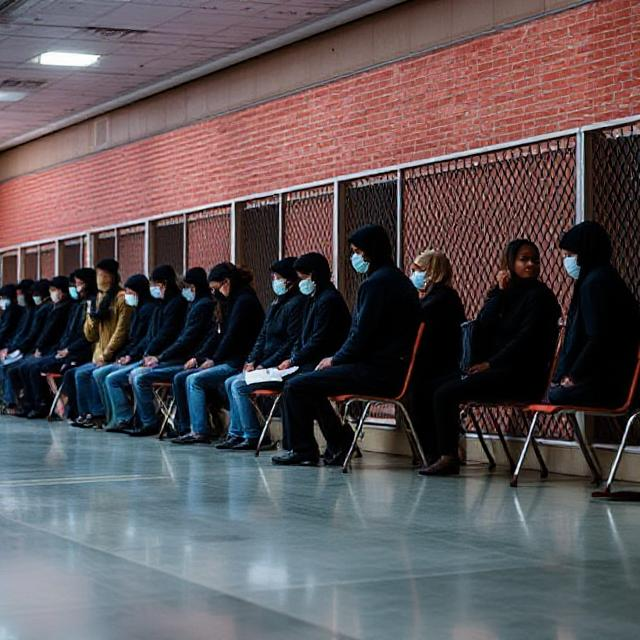Daily senior care assistance is a vital service designed to meet the everyday needs of elderly individuals while promoting their independence and quality of life. With aging, many seniors face challenges in performing routine tasks due to physical limitations, health conditions, or cognitive decline. Daily care assistance provides reliable support, ensuring seniors can live comfortably and safely, whether in their own homes or specialized care facilities.
What Is Daily Senior Care Assistance?
Daily senior care assistance involves providing hands-on help to seniors with activities of daily living (ADLs) and instrumental activities of daily living (IADLs). Trained caregivers, either professional or family members, deliver this care tailored to the unique needs of each senior. The primary goal is to create a supportive environment that enhances comfort, health, and dignity.
Key Components of Daily Senior Care Assistance
- Personal Care and Hygiene
Assistance with bathing, grooming, dressing, and maintaining personal hygiene is a core component. This ensures seniors feel refreshed and maintains their self-esteem. - Medication Management
Caregivers help seniors take medications on time and in the correct doses, ensuring adherence to prescribed treatment plans and reducing the risk of complications. - Meal Preparation and Nutrition
Balanced and nutritious meals are essential for seniors’ health. Caregivers prepare meals based on dietary needs, assist with feeding if necessary, and monitor food intake. - Mobility and Transportation
Daily care includes support with mobility, whether helping seniors move around the house, assisting with exercises, or providing transportation to appointments, social events, or shopping trips. - Household Assistance
Light housekeeping tasks, such as laundry, cleaning, and organizing, are often part of daily senior care. This creates a safe and comfortable living environment. - Companionship
Social interaction is vital for mental health. Caregivers engage seniors in conversations, hobbies, and activities to reduce loneliness and enhance emotional well-being. - Health Monitoring
Caregivers observe seniors for any changes in their physical or mental health and communicate these to family members or healthcare providers. Early detection of issues can prevent serious health concerns.
Benefits of Daily Senior Care Assistance
- Enhanced Independence
By receiving help with challenging tasks, seniors can focus on the activities they enjoy and maintain as much independence as possible. - Improved Safety
Caregivers minimize risks such as falls, medication errors, and accidents through their attentive and consistent support. - Better Health Outcomes
Proper nutrition, regular medication adherence, and health monitoring contribute to improved physical and mental health. - Relief for Family Caregivers
Daily care services provide respite for family members, ensuring they can balance caregiving responsibilities with their personal and professional lives. - Customized Care
Care plans are tailored to meet the unique needs and preferences of each senior, fostering a sense of individuality and respect.
Who Needs Daily Senior Care Assistance?
Daily senior care assistance is ideal for elderly individuals who:
- Have limited mobility and need help with walking, transferring, or using mobility aids.
- Experience difficulty managing personal hygiene or household tasks.
- Require regular medication but struggle with remembering dosages or timing.
- Suffer from chronic health conditions such as arthritis, diabetes, or heart disease.
- Feel isolated and benefit from companionship and social engagement.
- Need support recovering from surgery, illness, or injury.
Types of Daily Senior Care Assistance
- In-Home Care
This allows seniors to receive care in the comfort of their own homes. In-home caregivers provide personalized support tailored to the senior’s environment and preferences. - Adult Day Care Centers
These centers offer structured activities, meals, and care during the day, allowing family members to work or attend to other responsibilities. - Assisted Living Facilities
For seniors who require a higher level of assistance, assisted living facilities offer a combination of personal care and community engagement. - Live-In Care
In cases where seniors need round-the-clock support, live-in caregivers reside with them, offering consistent and comprehensive care. - Respite Care
This short-term care option supports seniors while providing family caregivers with a break from their duties.
How to Choose the Right Care Provider
When selecting a caregiver or care service, it’s essential to:
- Assess Needs: Identify the specific types of support required, such as personal care, companionship, or mobility assistance.
- Check Credentials: Ensure the caregiver or agency is licensed, insured, and has experience working with seniors.
- Consider Costs: Review pricing structures and explore financial assistance programs if necessary.
- Read Reviews: Look for testimonials or references to verify the quality of care provided.
- Meet the Caregiver: A personal meeting can help determine compatibility and establish trust.
Daily senior care assistance serves as a lifeline for elderly individuals, ensuring they can age gracefully while maintaining dignity and comfort in their golden years.






